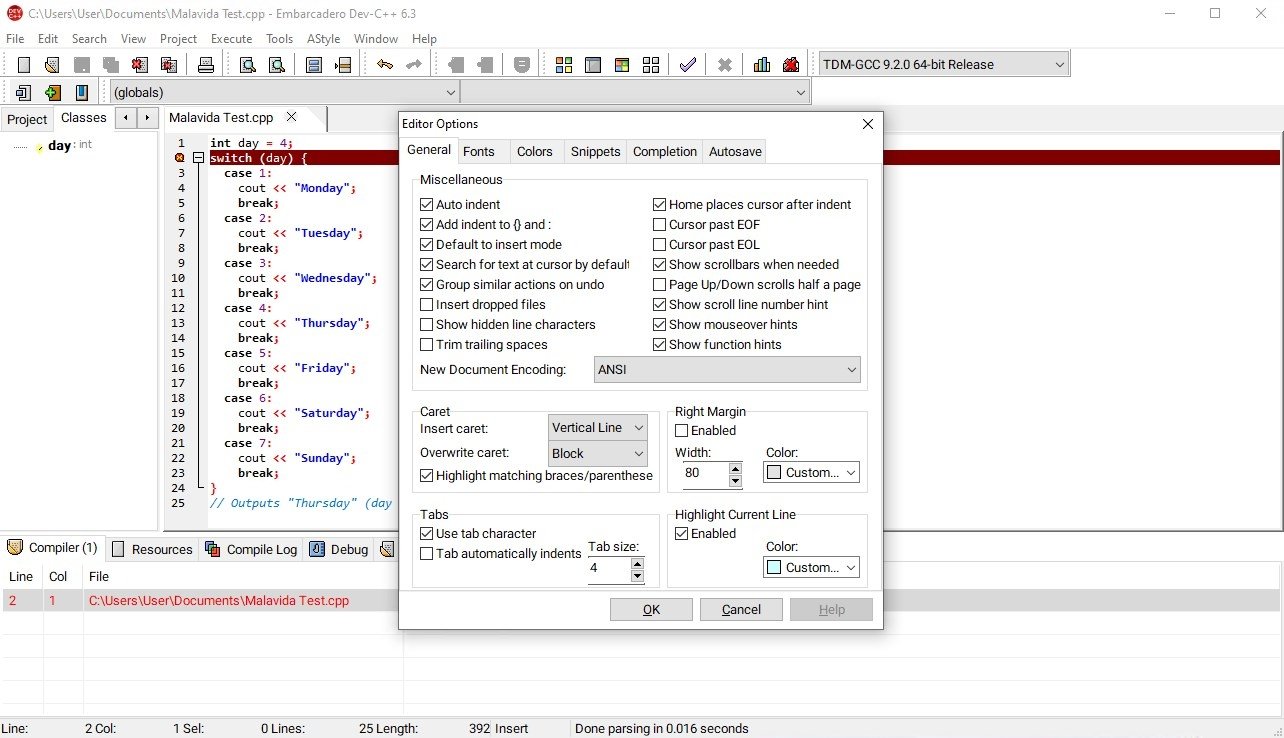Basic Syntax Of Dev C++
C++ is a popular programming language because it’s powerful, fast, easy to use, standardized, and more. Whether you are new to C++ programming or an advanced user, check out the following information on C++ mistakes, header files, and syntax. All information pertains to Windows, Mac, and Linux computers.
- Syntax Of C++ Program
- C++ Syntax List
- Dev C++ Syntax
- Basic Syntax Of Dev C Example
- C++ Syntax Guide
- Basic Syntax Of Dev C Download
The 10 Most Common C++ Mistakes
Nov 29, 2016 Hansoft is the agile project management tool for enterprise teams. Fast, efficient, and flexible, Hansoft empowers teams to collaborate more efficiently so they can advance together and build better products. Hansoft runs natively on leading operating sytems including OS, Windows, and Linux,. A C function definition consists of a function header and a function body. Here are all the parts of a function − Return Type − A function may return a value. The returntype is the data type of the value the function returns. Some functions perform the desired operations without returning a value. In this case, the returntype is the keyword void.
Syntax Of C++ Program
Although many C++ programmers take measures to prevent bugs, mistakes still slip through. This list of the ten most common mistakes while writing C++ code can help both new and veteran programmers:
You forgot to declare the variable.
You used the wrong uppercase and lowercase letters; for example, you typed Main when you meant main.
You used one equal sign (=) when you were supposed to use two (), either in an if statement or in a for loop.
You forgot #include <iostream> or using namespace std;.
You dropped the laptop in the swimming pool.
You forgot to call new and just started using the pointer anyway.
You forgot the word public: in your classes so everything turned up private.
You let the dog eat the remote.
You forgot to type the parentheses when calling a function that takes no parameters.
You forgot a semicolon, probably at the end of a class declaration.
The Usual C++ Header Files
In C++, a header file holds forward declarations of identifiers. Here are some of the most common C++ header files that you’ll be using, along with their correct spellings. These aren’t by any means all of them, but they are the most common:
Include <string> if you’re going to be using the string class.
Include <iostream> when you want to use cout and cin.
Include <fstream> when you want to read or write files.
Include <iomanip> if you want advanced manipulator usage in your streams.
Include <stdlib.h> for general operations, including system(“PAUSE”).
C++ Syntax that You May Have Forgotten

Remembering a bunch of C++ syntax can make you “loopy.” The following samples show the syntax of some of the more easily forgotten C++ situations: a for loop, a while loop, and a switch statement; a class and the code for a member function; a base class and a derived class; a function, function pointer type, and pointer to the function; and a class template and then a class based on the template.
Here’s a for loop:
Here’s a while loop that counts from 10 down to 1:
And here’s a switch statement:
C++ Syntax List

Dev C++ Syntax
Here’s a class and the code for a member function:
Basic Syntax Of Dev C Example
Here’s a base class and a derived class:
C++ Syntax Guide
Here’s a function, a function pointer type, and a pointer to the function:
Basic Syntax Of Dev C Download
And here’s a class template and then a class based on the template:
